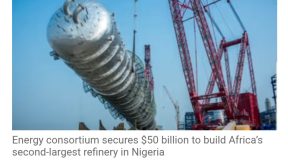The President Bola Tinubu-led Nigerian government has constituted a committee to resolve the longstanding debt crisis plaguing Power Generation Companies (GenCos).
The move, coming after years of strained relations between the government and power producers over unpaid invoices, is aimed not only at clearing the arrears but also at creating a payment structure that ensures future sustainability.
The Permanent Secretary, Ministry of Power, Mr. Mahmuda Mamman, announced the development on Monday in Abuja at the 10th-anniversary celebration of the Association of Power Generation Companies of Nigeria (APGC).
Mamman, who was represented by a Director in the Ministry, Mrs. Evangeline Babalola, said the committee’s task extends beyond debt repayment to establishing mechanisms that would prevent a recurrence of the liquidity crisis that has crippled the Nigerian Electricity Supply Industry (NESI).
“In recognition of the critical importance of resolving this issue for the sustainability of our power sector, Mr. President has constituted a committee specifically mandated to address the payment of outstanding debts owed to the GenCos,” he stated.
He commended the GenCos for their endurance and patriotism despite operating under immense financial strain.
“You have not abandoned your posts in spite of severe liquidity challenges that would have forced closure in any other industry. This is not just business; this is patriotism in action,” Mamman said.
He assured industry players that President Tinubu was fully aware of the liquidity challenges confronting the sector and remained determined to implement measures that would bring lasting relief.
“As we work to resolve the debt situation, I encourage you to maintain the same spirit of resilience and commitment that has characterised your operations over the past decade,” Mamman added.
The event, themed “A Decade of Powering Progress, Driving Nigeria’s Energy Transformation,” provided a platform for stakeholders to reflect on the sector’s decade-long journey since privatisation — one marked by ambition, investment, and recurring financial bottlenecks that continue to test Nigeria’s power reform agenda.
In April, Power Generation Companies (GenCos) in Nigeria raised the alarm over an imminent shutdown of electricity plants nationwide due to a staggering ₦4 trillion debt owed by the government.
In a statement issued by Colonel Sani Bello, Chairman of the Board of Trustees of the Association of Power Generation Companies (APGC), the GenCos disclosed they were owed ₦2 trillion for electricity supplied in 2024 and an additional ₦1.9 trillion in legacy debts.
The companies lamented that they receive less than 30% of their monthly invoices for power supplied to the national grid, severely hampering their ability to sustain operations.
“The power generation companies have continued to bear the brunt of the liquidity crisis in the Nigerian Electricity Supply Industry (NESI). Despite significant investments and efforts to ramp up capacity, GenCos face systemic constraints, unfriendly policies, and mounting debts without a clear repayment plan. The absence of firm contracts and a securitized market has further complicated financial planning,” the statement read.
The GenCos warned that the liquidity crisis could trigger a total collapse of the electricity value chain, leading to widespread blackouts across the country.

